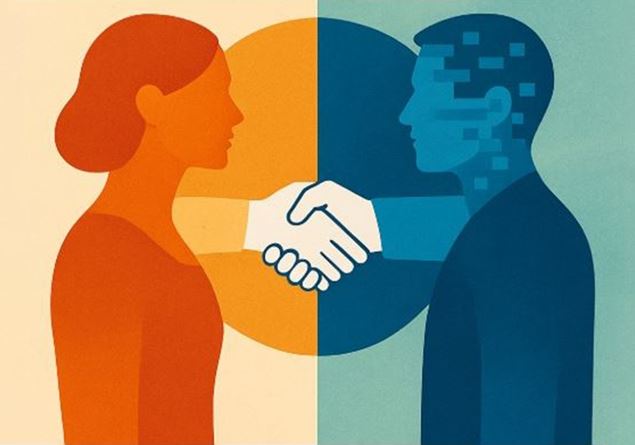by Maria Martello*
Relationships are often a cross fire, represent the plots of a complexity that is objectively difficult to manage. And sometimes the skills are missing and we propose to recover them: it is always the right time to do it. Nobody has formed us to manage interpersonal relationships, myriads of more or less large problems achieve. We believe that they can only become disputes, that is, they can only degenerate into judicial disputes and a series of micro and macro conflict at the end of the day, make our life similar to a battlefield. Choose to succumb and hurt us? Penalty to drag himself into a miserable and frantic survival interrupted by flashes of well-being, or rather euphoric illusions? Or decide to fight by meeting endless obstacles and losing peace? Working energy that we should best invest for our complete realization and for the success we tend to?
In this complex scenario, a further factor aggravated the difficulties: the growing use of digital. Powerful and precious tool, but also ambivalent, which has made possible new ways of interaction, but has reduced that beneficial daily exercise of good relationships, which once spontaneously arose in the physicality of direct, continuous, natural interactions. What to do? Here, we present a way to solve them alone and with full satisfaction. In fact, we have a perspective at hand that can overturn the situation that crushes us, it is worth knowing, that of the philosophy of mediation. It is an antidote: it activates communication, it reports it on an authenticity level, also conveys it to deep levels, where all the dimensions of being, including the body, can return to interact. He returns to the report that experiential quality that digital exchange tends to impoverish, bringing back to the center not only the content but mutual presence. We then leave the door open to the ‘wonder’ of discovering that it can and is for everyone. The philosophical-humanistic mediation will be the key to tomorrow’s well-being. We suggest starting to deepen it with some reading (e.g. my book Build intelligent relationships, Milan 2021 e A high justice and otherMilan 2023) and here we immediately give some basic principles that can transform our attitude into everyday life.
A system of thought and an innovative methodology follows, a new paradigm that helps us and involves a radical change of mentality. It makes possible the challenge of a life of relationship with the other in which the ego and the Tu implement a happy exchange based on diversity. In fact, in the complexity of life, even the best intentions alone are not enough. They are not sufficient to achieve an agreement, often intimately unsatisfactory because it pervaded by the bitter taste of compromise, of renunciation. Between the two quarrels, one wins and the other loses and often the latter wants revenge, or, according to the wisdom of the popular sayings, between the two quarrels the third enjoys, but what? Perhaps it is appropriate to say that the third “average” rather than enjoying a clash in which, in the end, there will still be a victim.
A prerequisite is to see the conflict as something inherent, which sometimes is an expression of life, of desire to be there and to do, but it originates the raise of shields by those who basically fear to be checked by the other’s initiatives. All the more they appear valid for him, the more he lives as fearsome them and therefore to be brought to their birth. Fundamental in this new logic is to ask us a question and give us an answer: “Why turn off my candle to make yours shine better?”. As if never experienced how much “light”, to everyone’s advantage, there can be if more candles find the right and the place to “shine”. How unaware of wealth inherent in that collaboration that allows you to draw the best fruit from diversity? The possibility is often lost that “one more one does not do two, but three”.
Mediation believes that the limits inherent in a situation can become resources to transform it and transform. The difficulties sometimes constitute the way to achieve balance and well -being: a journey in depth in search of the horizon of meaning in which you are immersed, to keep critical thinking alive and not ignore the instances of one’s self. This logic induces to ask ourselves not only the as of things, but also why, in a perspective that sees educating to become adults, in a full sense and not only registry, as the main task of life. It makes us experience concretely how the relationship with the other person represents the wise and non -spontaneous fruit of a preparation that follows “rules” and which therefore requires action “strategies”, and as through the learning of these “strategies” it is possible to build better relationships with others, with a view to a constructive management of the conflict. The goal to which to tend to is the refinement of our emotional intelligence, the one that helps us to choose the path of mediation for the peaceful resolution of the conflict, the intelligence that is able to transform the pain of the conflict into opportunities to improve the quality of one’s own and others life. Certainly humanistic-philosophical mediation claims the breakdown of the old patterns, of the obvious, requires to seriously question beliefs with which it was believed to have dealt once and for all, that they had to go beyond the already known.
*Psychologist Professor of Psychology of interpersonal relationships


